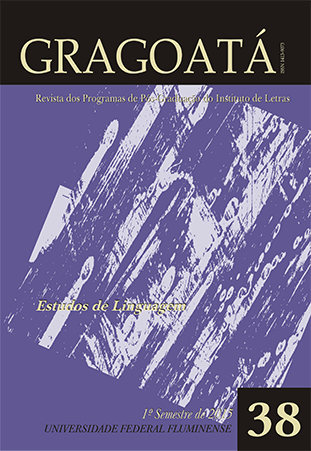EFFECTS OF BILINGUALISM ON INHIBITORY CONTROL AND WORKING MEMORY: A STUDY WITH EARLY AND LATE BILINGUALS
DOI:
https://doi.org/10.22409/gragoata.v20i38.33312Keywords:
bilingualism, working memory, aging, inhibitory controlAbstract
A dense body of research shows that cognitive functions change with age. More recently, studies have provided evidence that bilingualism aids in offsetting age-related losses in executive function (Bialystok, Craik, Klein & Viswanathan, 2004; Salvatierra, 2010). The present study investigates the performances of early bilinguals (Brazilian Portuguese/Hunsrückisch), late bilinguals (Brazilian Portuguese/English), and monolinguals (Brazilian Portuguese) on executive control and working memory tasks. Participants (N = 104) performed an executive control task (Simon) and a working memory (Alpha Span) task. Statistical analyses showed significant age-related effects on executive functions: younger adults outperformed older adults in the tasks. Furthermore, early bilinguals presented more efficient inhibitory processes showing smaller Simon effect costs and higher working memory span than monolinguals. As for the late bilingual group, their performance on inhibitory control tasks was significantly faster than that of their peer monolingual group. Results suggest that bilingualism, regardless of the context and age of acquisition, has an effect on inhibitory control and working memory.
Downloads
Downloads
Published
How to Cite
Issue
Section
License
Authors who publish in Gragoatá agree to the following terms:
The authors retain the rights and give the journal the right to the first publication, simultaneously subject to a Creative Commons license CC-BY-NC 4.0, which allows sharing by third parties with due mention to the author and the first publication by Gragoatá.
Authors may enter into additional and separate contractual arrangements for the non-exclusive distribution of the published version of the work (for example, posting it in an institutional repository or publishing it in a book), with recognition of its initial publication in Gragoatá.

Gragoatá is licensed under a Creative Commons - Attribution-NonCommercial 4.0 International.














